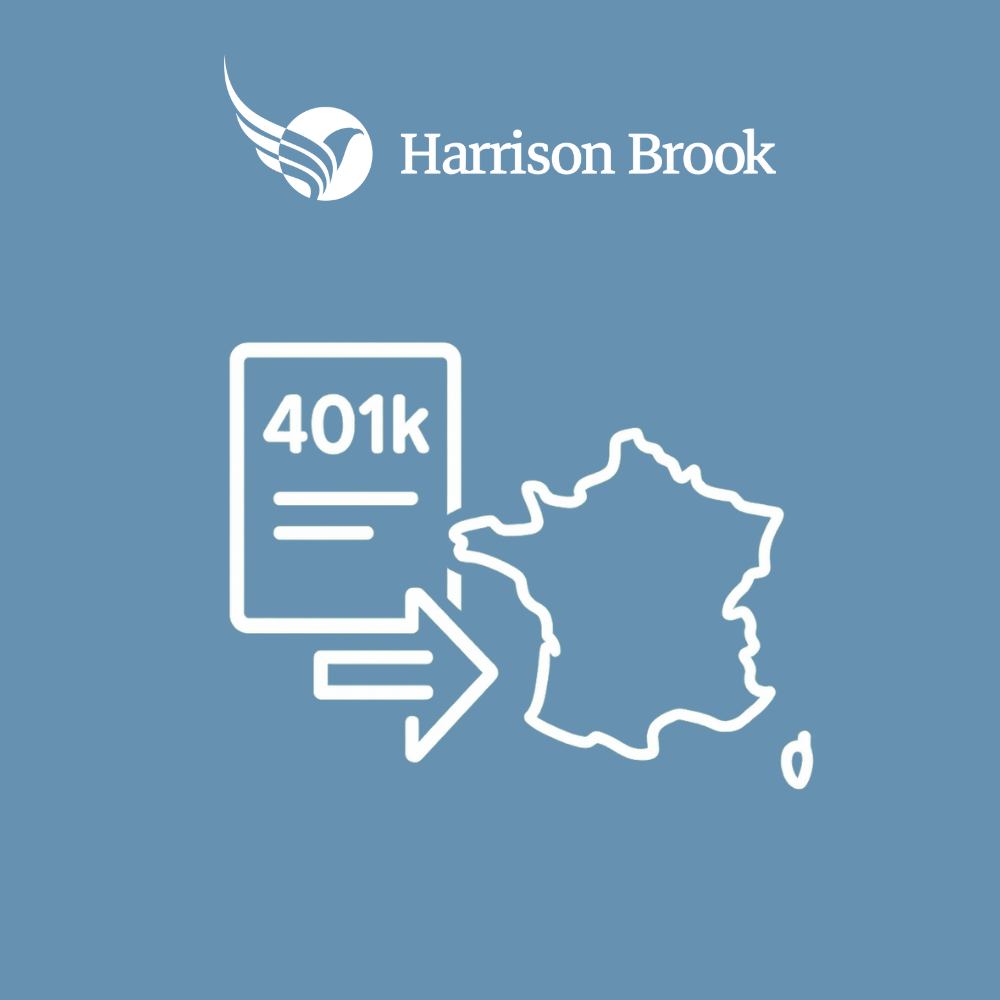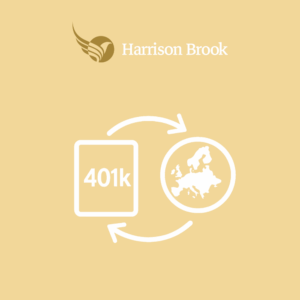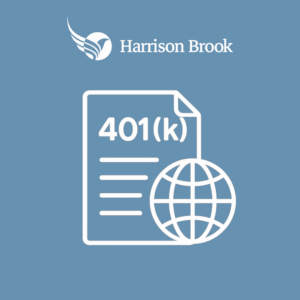
Moving to France is a dream for many Americans seeking a better quality of life, culture, and cuisine. But before you pack your bags, one important question often arises: what happens to your 401k if you move to France? Understanding how to manage, transfer, or withdraw funds from your US retirement plan while living abroad is key to protecting your long-term savings and avoiding unnecessary tax complications.
Introduction to Retirement Accounts Overseas
For many US expats, managing retirement accounts overseas can be a daunting task. US retirement accounts, such as 401(k) plans and IRAs, are governed by complex US tax laws that continue to apply even after you move abroad. Understanding the tax implications of holding and withdrawing from these accounts is essential to avoid unexpected tax liabilities and penalties. Whether you are planning your move or already living in France, it’s important to know how your 401k and other US retirement accounts will be treated under both US and foreign tax systems. Careful planning can help you protect your retirement savings and ensure you remain compliant with all relevant regulations.
Understanding 401k Plans
A 401(k) is a popular employer-sponsored retirement plan in the US, allowing employees to save for retirement in a tax-advantaged way. Contributions to a 401k are typically made pre-tax, and the funds grow tax-deferred until withdrawal. However, for US expats, managing a 401k from abroad introduces new challenges. You must consider the tax implications of your retirement account, including the risk of double taxation if both the US and your new country of residence tax your withdrawals. It’s also important to explore your options, such as rolling over your 401k into an IRA or another qualified retirement account, to maintain control and flexibility over your retirement plan. Understanding these rules will help you make informed decisions about your retirement income and avoid unnecessary tax burdens.
Foreign Retirement Account Considerations
While foreign retirement accounts may seem like an attractive way to build retirement savings in your new country, they come with their own set of challenges for US expats. Local tax laws can differ significantly from US tax laws, and failing to understand these differences can lead to unexpected tax liabilities. Additionally, contributions to a foreign retirement account may not receive the same tax advantages as US-based accounts, and withdrawals could trigger early withdrawal penalties or additional taxes. US expats must also be mindful of reporting requirements on their US tax return, as foreign retirement accounts can complicate your overall tax situation and increase the risk of double taxation. Before transferring funds or opening a foreign retirement account, it’s crucial to understand the rules and seek professional advice to ensure your retirement planning remains on track.
What Happens to My 401k if I Move to France?
If you move to France, your 401k remains in the United States. The plan is owned and held by the US provider, meaning you cannot physically transfer it into a French pension scheme or local retirement account. However, you can maintain the account, continue managing your investments, and withdraw funds later according to US retirement rules. As a US expat, it is important to review your investment options, including whether your account offers online access, so you can manage your retirement savings remotely.
You can keep your 401k even as a non-resident, but it is crucial to update your contact details and ensure your plan custodian allows overseas addresses. The plan provider may allow or restrict online access for non-US residents, so checking their policies in advance is essential.
If you already left your employer, you can leave your 401k with your former employer or roll it over to an IRA account, also known as an individual retirement account. The rollover process typically involves a direct transfer to avoid taxes and penalties, and there are several rollover options available depending on your needs as a US expat. An IRA can provide greater investment flexibility, lower fees, and easier management while you live abroad.
Can a 401k Be Transferred Internationally?
Technically, a 401k cannot be transferred or merged into a French or European pension plan. US law does not recognize foreign pension structures for direct rollovers, meaning you cannot move your 401k to an Assurance Vie or PER (Plan d’Épargne Retraite) in France.
However, you can roll over your 401k into an IRA. This process, known as an IRA rollover, involves transferring your retirement funds from your 401k to an IRA account, with a financial institution acting as the withholding agent and managing the transfer and tax withholding procedures. You can choose between different types of IRAs, such as a traditional IRA, Roth IRA, or Roth IRAs, each offering unique tax advantages and rules. Rolling over to an IRA can provide a wider range of investment choices and greater flexibility, but you should also consider potential currency risk, as fluctuations in exchange rates may impact the value of your US-based retirement assets when living abroad.
An international financial adviser familiar with both US and French systems can help structure your investments so that your retirement income remains compliant in both jurisdictions. It is also important to consult a financial advisor and tax professional for personalized guidance on cross-border retirement planning and to ensure compliance with all tax regulations.
Can I Still Get My Pension if I Move to France?
Yes, you can still receive your 401k or IRA distributions while living in France. US citizens abroad continue to have access to their American retirement accounts, although withdrawals may be subject to both US and French taxation depending on your residency and the tax treaty rules. Tax treaties between the two countries help determine how distributions are taxed and are designed to prevent you from being double taxed on the same income.
To avoid double taxation, the US France Tax Treaty determines which country has the right to tax your pension income and helps avoid immediate tax liabilities and double taxation across two countries. Generally, private pensions such as 401k or IRA distributions are taxable only in the country of residence, meaning France if you are a French tax resident. However, these distributions may still need to be reported in the US, even if they are not taxed there.
It is important to plan your withdrawals carefully. France treats these distributions as taxable income, and you may need to pay income tax or income taxes on the amounts you withdraw. The exact calculation depends on whether you withdraw money as lump sums or annuities, and taking large distributions before reaching retirement age can result in penalties or push you into a higher tax bracket. Your specific circumstances—such as your age, residency status, and the way you withdraw money, can all affect the tax outcome. Proper structuring can reduce your overall tax exposure.
Tax Implications: How Is US Retirement Income Taxed in France?
Under French tax law, your 401k or IRA withdrawals are typically taxed as pension income. The French tax rate varies based on your total household income and residency status. In most cases, income from a 401k is included in your annual French tax return and subject to progressive income tax bands. The tax treatment of different types of retirement income, such as capital gains from investments or tax free withdrawals from Roth IRAs, can vary significantly, so it is important to understand how each is classified and taxed under both US and French law.
Social charges, known as prélèvements sociaux, may also apply unless you hold a certificate proving continued coverage under the US Social Security system.
Because taxation depends on multiple factors including your age, the type of withdrawal, and whether you are still filing US tax returns, expert advice is essential. Harrison Brook works with cross-border tax specialists to ensure your 401k and IRA income are structured efficiently under both systems, addressing the unique challenges faced by Americans living in France.
Managing Your 401k from France
Here are a few key steps to take before and after your move:
- Check your plan provider’s policies
Confirm that your 401k or IRA provider allows you to maintain your account while living abroad. Managing a retirement account overseas can involve additional challenges, such as legal, tax, and reporting requirements. If your provider does not support expatriates, consider consolidating into a provider that does. - Evaluate a rollover to an IRA
Rolling over your 401k or other employer sponsored retirement plans to an IRA can offer greater investment flexibility and may reduce administrative challenges when managing from France. Alternatively, you may want to consider contributing to a foreign retirement plan or exploring foreign retirement plans available in your country of residence, keeping in mind the local regulations and tax implications. - Review your tax position
Coordinate with both a US CPA and a French tax adviser to confirm your filing obligations and treaty benefits. - Plan currency exposure
Since your 401k remains in USD, fluctuations in the euro-dollar exchange rate can impact your real income once you start drawing from it. - Avoid early withdrawals
Unless absolutely necessary, avoid withdrawing funds before age 59½ to prevent early withdrawal penalties.
Common Issues Faced by US Expats
US expats managing retirement accounts overseas often encounter a range of challenges. One of the most significant is the risk of double taxation, where both the US and the foreign country may tax the same retirement income. Navigating the complexities of US tax laws, including the obligation to file a US tax return and report worldwide income, can be overwhelming. Accessing your retirement accounts or transferring funds to a foreign retirement account may also be more difficult from abroad, and you could face additional tax liabilities or early withdrawal penalties if not handled correctly. To avoid costly mistakes, it’s essential to seek professional tax advice and stay informed about both the US and local tax laws. By understanding these common issues, US expats can better manage their retirement funds, minimize tax exposure, and make confident, informed decisions about their financial future.
FAQs on Transferring a 401k to France
Can I withdraw my 401k if I leave the USA?
Yes, but withdrawals before age 59½ are usually subject to a 10 percent penalty plus ordinary income tax.
Can a non US citizen participate in a 401k?
Yes, provided they worked for a US employer and contributed while residing in the US. However, they may face extra hurdles accessing the funds abroad.
Does France recognize a Roth 401k?
France generally treats Roth 401k withdrawals as taxable unless you can prove they were made from after-tax contributions and meet US holding period rules.
Do I pay tax twice on my 401k income?
No, the US France Tax Treaty prevents you from being double taxed on your US retirement account. You must still declare income in both countries, but credits or exemptions apply to avoid being taxed twice. However, without proper planning, there is a risk of being double taxed, so it is important to understand the tax rules for your US retirement account before and after moving.
Can I convert my 401k into an Assurance Vie in France?
No direct conversion is possible, but you may use after-tax proceeds from withdrawals to invest in an Assurance Vie or other French investment vehicles.
Why Work with a Cross Border Financial Adviser?
Navigating two tax systems, currency exposure, and international reporting requirements can quickly become complex. Expat retirement planning is essential for Americans living abroad, as it requires careful management of US retirement accounts and compliance with both US and foreign laws. Consulting a financial advisor or cross border financial adviser who understands both the US and French frameworks can help you structure your assets efficiently and in full compliance.
At Harrison Brook, we specialize in helping Americans abroad manage their investments, retirement accounts, and long-term financial goals. Whether you are planning to retire in France or already living there, our team can guide you through every step of optimizing your 401k and IRA income internationally.
Get started
Plan your move to France with confidence.
Speak with a cross border financial adviser at Harrison Brook to explore the most tax efficient way to manage or roll over your 401k before relocating.
👉 Contact Harrison Brook USA today to schedule a free consultation.



